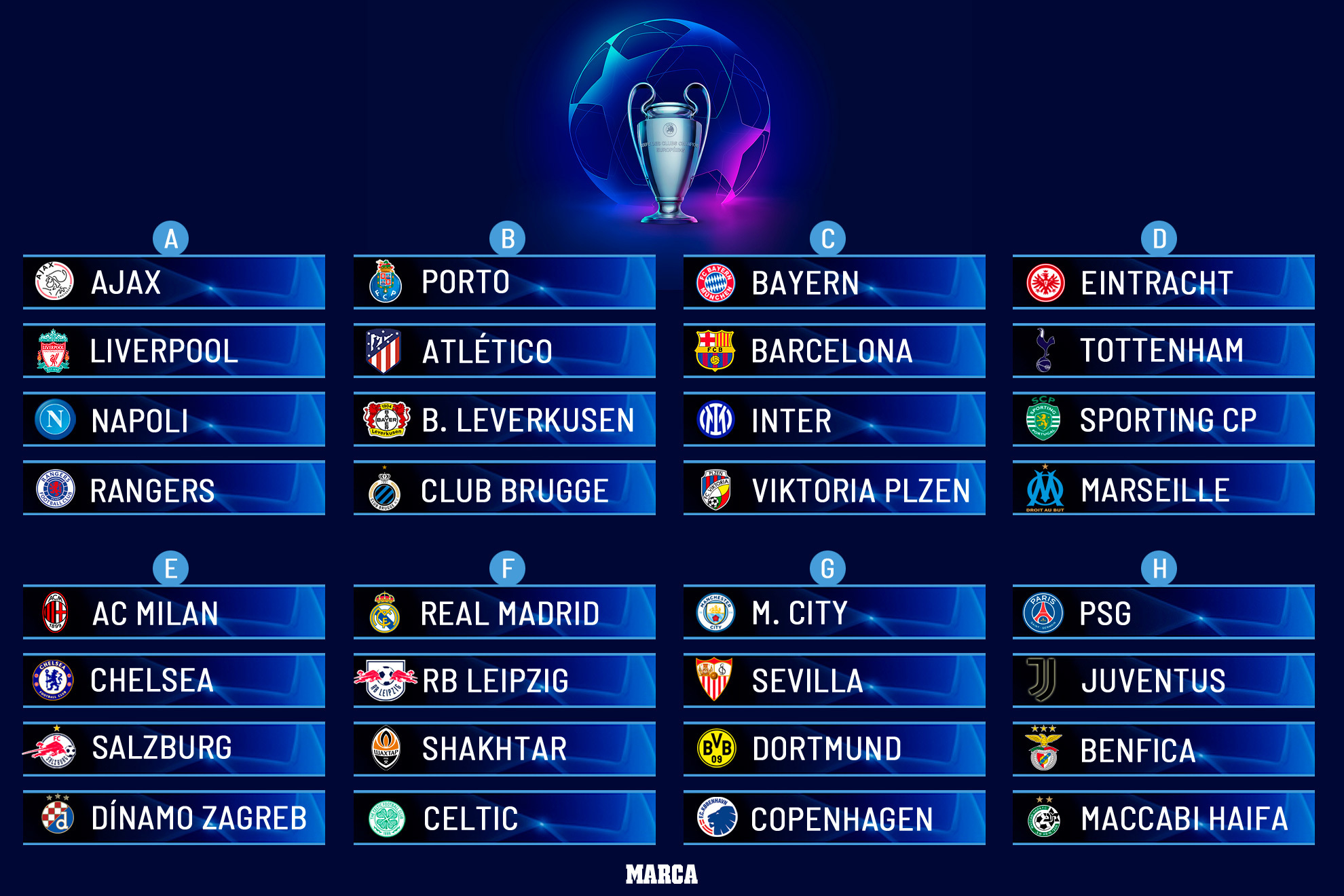Wondering where to find the latest fixtures and match details for the UEFA Champions League? Look no further than below!
Editor's Note: UEFA Champions League: Fixtures And Match Details have published today date
We've done the hard work for you, analyzing and digging through all the information to put together this comprehensive guide. So whether you're a die-hard fan or just want to catch the biggest matches, we've got you covered.
| Fixture | Date | Time | Venue |
|---|---|---|---|
| Real Madrid vs. Liverpool | May 28, 2023 | 9:00 PM CEST | Stade de France, Paris |
In this guide, you'll find:
- The complete schedule of all UEFA Champions League matches
- Detailed information on each match, including the teams involved, the venue, and the kick-off time
- Links to live streaming and highlights
- Expert analysis and predictions
UEFA Champions League: Fixtures and Match Details
UEFA Champions League is the world's most prestigious club competition. The competition involves 32 of the best football clubs in Europe, and it is organized by UEFA.

Champions League final Man of the Match: Kingsley Coman | UEFA - Source www.uefa.com
Question 1: What are the fixtures for the UEFA Champions League?
UEFA Champions League fixtures are determined by a draw, which takes place in August. The draw is divided into two stages: the group stage draw and the knockout stage draw.
Question 2: How do teams qualify for the UEFA Champions League?
The teams that qualify for the UEFA Champions League are the champions of each of the top leagues in Europe, as well as the runners-up and third-place finishers in some of the top leagues. The champions of the top four leagues in the UEFA coefficient rankings receive direct entry into the group stage, while the champions of the fifth to eighth-place leagues enter the qualifying rounds.
Question 3: What are the match details for the UEFA Champions League?
The matches in the UEFA Champions League are played on Tuesdays and Wednesdays. The group stage matches are played over six matchdays, with each team playing two matches at home and two matches away. The knockout stage matches are played over two legs, with the team that scores the most goals on aggregate advancing to the next round.
Question 4: What is the format of the UEFA Champions League?
The UEFA Champions League is divided into two stages: a group stage followed by a knockout stage. In the group stage, the 32 teams are divided into eight groups of four teams each. The teams in each group play each other twice, with the top two teams in each group advancing to the knockout stage.
Question 5: What are the prize money for the UEFA Champions League?
The prize money for the UEFA Champions League is distributed to the clubs based on their performance in the competition. The winner of the tournament receives a significant amount of prize money, while the other clubs that participate in the competition also receive a share of the prize money.
Question 6: What is the history of the UEFA Champions League?
The UEFA Champions League was first played in 1955 as the European Cup. The competition was originally a knockout tournament, with the winner of each round advancing to the next round until only one team remained. In 1992, the competition was expanded to include a group stage, and in 1997 the name of the competition was changed to the UEFA Champions League.
Tips
For those looking to enhance their UEFA Champions League viewing experience, consider the following tips:
Tip 1: Familiarize Yourself with the Teams and Players: Delve into the histories and playing styles of the participating teams and star players. This knowledge enriches the viewing experience, allowing for a deeper understanding of the strategies and techniques employed.
Tip 2: Tune in to Pre-Match Analysis: Dedicate time to watching pre-match shows and expert analysis. These programs provide insights into team tactics, player form, and potential match outcomes. They enhance comprehension and build anticipation for the upcoming game.
Tip 3: Follow Commentary and Match Updates: Opt for live commentary or reliable match updates to stay abreast of the latest developments. This ensures you don't miss any crucial moments or tactical changes throughout the competition.
Tip 4: Explore Behind-the-Scenes Content: Engage with official UEFA Champions League social media platforms and websites for exclusive interviews, behind-the-scenes footage, and player profiles. This content enhances the connection to the players and teams, creating a more immersive experience.
Tip 5: Gather with Fellow Fans: Join forces with other enthusiasts to create a communal atmosphere. Whether gathering at a sports bar or hosting watch parties at home, sharing the experience with like-minded individuals fosters camaraderie and amplifies the overall enjoyment.
Tip 6: Utilize Multiple Platforms: Enhance your viewing experience by utilizing various platforms. Stream the matches on your preferred device while simultaneously following live updates or expert commentary on social media or dedicated websites. This comprehensive approach keeps you informed and engaged.
These tips aim to elevate the UEFA Champions League viewing experience, providing a deeper understanding, heightened anticipation, and a more immersive atmosphere that enriches the overall enjoyment of the competition.
UEFA Champions League: Fixtures And Match Details
The UEFA Champions League, a world-renowned club football competition, captivates fans with its high-stakes matches and thrilling atmosphere. Six aspects essential to the tournament's success are as follows:
- Team Participation: Elite clubs from top European leagues compete for the coveted trophy.
- Fixture Calendar: Matches are played over several months, culminating in the final.
- Match Venues: Iconic stadiums across Europe host the thrilling contests.
- Live Coverage: Extensive broadcasting ensures fans around the globe witness the action.
- Player Performances: World-class players showcase their skills, making the tournament a spectacle.
- Fan Engagement: Passionate supporters create an electrifying atmosphere at matches.

Uefa Champions League 2024 Groups - Jewel Lurette - Source lishekalina.pages.dev
These diverse aspects contribute to the UEFA Champions League's status as the pinnacle of club football. From the elite teams' participation to the captivating match venues and the unwavering support of fans, the tournament consistently delivers unforgettable moments that captivate audiences worldwide.
UEFA Champions League: Fixtures And Match Details
The UEFA Champions League is the most prestigious club competition in European football. The tournament features the best teams from across Europe and is played over the course of a season, with matches played on Tuesday and Wednesday nights. UEFA Champions League fixtures are highly anticipated events, and tickets are often sold out long in advance. Match details, including lineups, scores, and highlights, are widely reported in the media, and fans can follow the action live on television or online.

Uefa Champions League Brackets 2024 - Alie Lucila - Source katyaqfelecia.pages.dev
The UEFA Champions League is a major source of revenue for the clubs that participate, and it also has a significant impact on the transfer market. Clubs that perform well in the Champions League can earn millions of euros in prize money, and they can also attract top players who want to compete at the highest level. The Champions League is also a major marketing platform for clubs, and it can help them to build a global brand.
The UEFA Champions League is a highly competitive tournament, and only the best teams are able to reach the latter stages. In recent years, Real Madrid has been the most successful club in the Champions League, winning the trophy five times in the past eight years. Other clubs that have enjoyed success in the Champions League include Barcelona, Bayern Munich, and Liverpool.
The UEFA Champions League is a truly global competition, with teams from all over the world competing for the trophy. The tournament is a major source of revenue for the clubs that participate, and it also has a significant impact on the transfer market. The Champions League is a highly competitive tournament, and only the best teams are able to reach the latter stages.
Conclusion
The UEFA Champions League is the most prestigious club competition in European football. The tournament features the best teams from across Europe and is played over the course of a season, with matches played on Tuesday and Wednesday nights. UEFA Champions League fixtures are highly anticipated events, and tickets are often sold out long in advance. Match details, including lineups, scores, and highlights, are widely reported in the media, and fans can follow the action live on television or online.
The UEFA Champions League is a major source of revenue for the clubs that participate, and it also has a significant impact on the transfer market. Clubs that perform well in the Champions League can earn millions of euros in prize money, and they can also attract top players who want to compete at the highest level. The Champions League is also a major marketing platform for clubs, and it can help them to build a global brand.